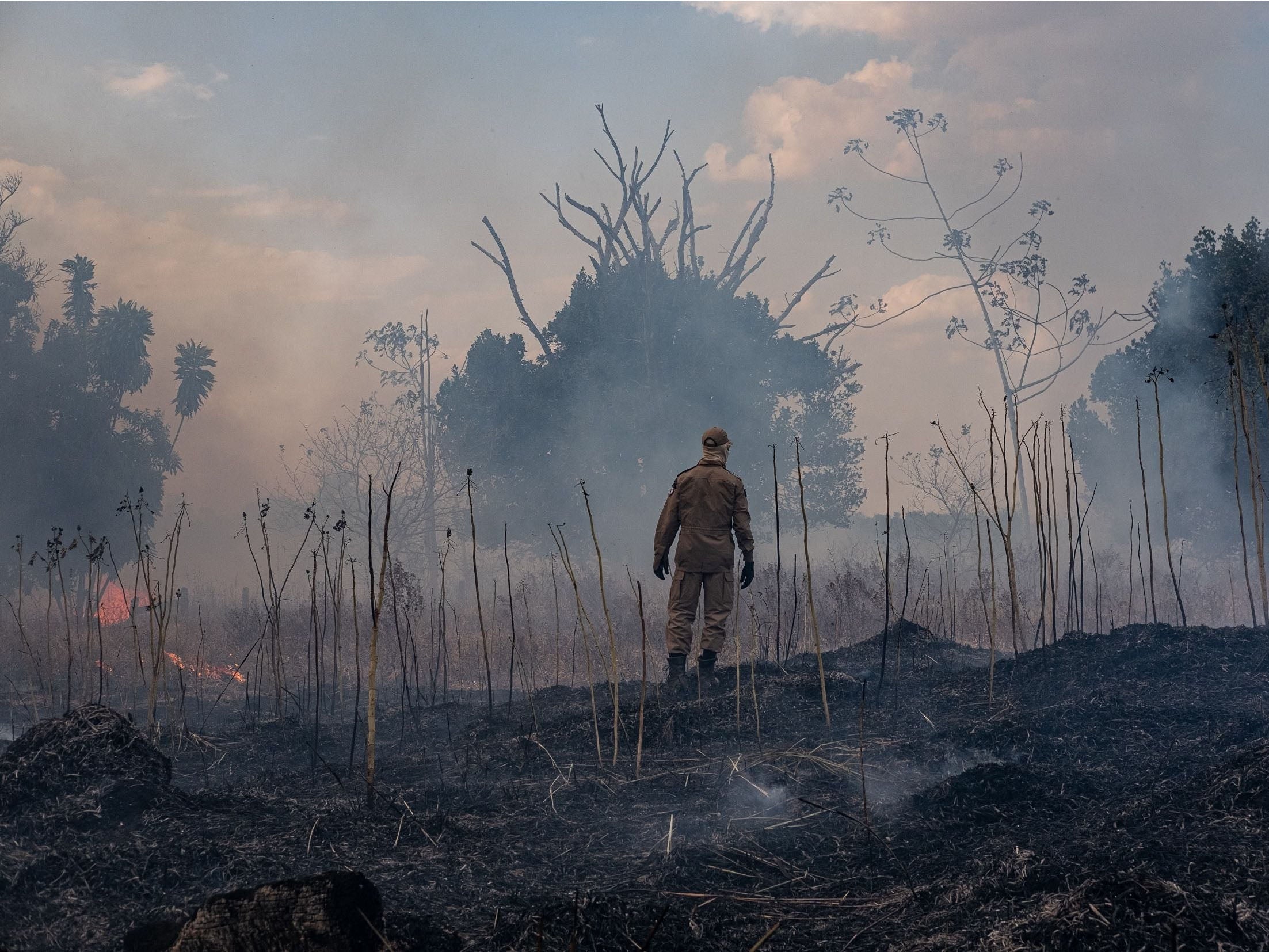Amazon deforestation accelerates by almost a third in year since far-right Bolsonaro took power, space agency reveals
Over 2,000 football pitches a day levelled, as government insists record fires were ‘below historical average’

Your support helps us to tell the story
From reproductive rights to climate change to Big Tech, The Independent is on the ground when the story is developing. Whether it's investigating the financials of Elon Musk's pro-Trump PAC or producing our latest documentary, 'The A Word', which shines a light on the American women fighting for reproductive rights, we know how important it is to parse out the facts from the messaging.
At such a critical moment in US history, we need reporters on the ground. Your donation allows us to keep sending journalists to speak to both sides of the story.
The Independent is trusted by Americans across the entire political spectrum. And unlike many other quality news outlets, we choose not to lock Americans out of our reporting and analysis with paywalls. We believe quality journalism should be available to everyone, paid for by those who can afford it.
Your support makes all the difference.Figures from Brazil’s space agency show levels of deforestation in the Amazon have hit their highest rate in more than a decade.
Loss of forest between August 2018 and July this year is up by 30 per cent compared with the same period a year earlier, according to official data released on Monday by the Brazilian Space Research Institute (Inpe).
The total level of deforestation recorded was 9,762 km² – the greatest area of rainforest levelled since 2008 – amounting to over 2,000 football pitches a day.
However, the data refers to a period ending just before this year’s unprecedented fires were at their height.
Jair Bolsonaro, the far-right president of Brazil, has previously described Inpe’s reports as a “lie”. Ricardo Galvao, the former director of Inpe, left his position “involuntarily” in August following publications of reports critical of the government’s handling of deforestation.
Mr Bolsonaro’s policies include loosening regulations and protections governing natural reserves and indigenous lands as a means of spurring economic growth.
However, environment ministry officials have said they will meet the Amazon region’s governors later this week to discuss ways they can reduce deforestation.
In July, the rate of deforestation equated to roughly an area the size of Manhattan every day, with experts warning the vital rainforest is nearing a “tipping point” in which one-third of its ecosystem could be irreversibly damaged, as the region will become permanently drier.
In a statement, Greenpeace Brazil’s Cristiane Mazzetti, said: “President Bolsonaro’s anti-environmental agenda favours those who practice environmental crimes, and encourages violence against forest people. His administration is trashing practically all the work that has been done in recent decades to protect the environment and end deforestation.
“High deforestation rates and lack of governance costs lives and positions the country against the fight to tackle climate change. It also damages the economy, as the international market does not want to buy products contaminated with environmental destruction and violence.”
The world’s largest rainforest is an enormous repository for carbon, which is released back into the atmosphere when trees are felled and burnt.
Deforestation is almost always followed by fire as the cut vegetation is left to dry before being incinerated.
The new figures come shortly after research into the devastating fires contradicted the Bolsonaro administration’s claims that the blazes were “below the historical average”.
More than 72,000 fires were detected across Brazil between January and August – the highest number since records began in 2013 and an 83-per-cent increase on the same period last year.
According to the paper published in Global Change Biology, scientists found deforestation in July was four times higher than the average in the previous three years. They also found that the number of active fires was three times higher than they were in 2018, reaching their highest levels since 2010.
Professor Jos Barlow, lead author of the paper, said: “The marked upturn in both active fire counts and deforestation in 2019 therefore refutes suggestions by the Brazilian government that August 2019 was a normal fire month in the Amazon.”
Join our commenting forum
Join thought-provoking conversations, follow other Independent readers and see their replies
Comments